TABLE OF CONTENTS
Best Cuban Beverage Types
A unique, pre-sweetened type of espresso that originated in Cuba known as café Cubano is often referred to as Cuban espresso, Cuban coffee, Cuban pull, or Cuban shot. Although it holds a unique status in Cuba, where it traditionally stands as the essential social and cultural beverage, Cuban espresso is also very popular and widely available throughout Latin America and Florida.
It consists of an espresso shot that is sweetened with demerara sugar while being brewed. This espresso variety is made by brewing the darker roasts with sugar, which results in light-brown foam on top of the coffee. Cuban-style espresso is considered a mid-afternoon standard that is typically served alongside a glass of water.
MAIN INGREDIENTS
Sugary, refreshing, and herbaceous, Mojito is a traditional cocktail based on rum as the key ingredient. It has a relatively low alcohol content (about 10%). Although Havana is considered its birthplace, the origin of this simple cocktail is still disputed.
The original Cuban cocktail recipe includes white rum, sugar, lime juice, soda water, and spearmint yerba buena that grows on the island, but almost every mint variety can be used in the mix if yerba buena is not available. The components of the cocktail are added in a particular order: sugar and lime juice are gently mashed before mint and rum are added to the combination; the cocktail is then briefly stirred and topped with ice and sparkling soda water.
VARIATIONS OF Mojito
MAIN INGREDIENTS
Guarapo is a Latin American drink made from raw, pressed sugarcane juice mixed with water, ice, and lots of fresh limes. Most often, the vendors that sell it will extract the sugar cane juice right on the spot using a metal sugar cane press.
The juice drips into a bucket below the press where it’s sieved before serving. It has a slightly sweet flavor, and it’s most popular in the summer as a cold refreshment. The word guarapo was first recorded in the 19th century by Esteban Pichardo, who defines it as a broth or a liquid made from sugarcane juice, extracted under pressure.
MAIN INGREDIENTS
Daiquiri is a group of cocktails prepared with rum, fresh lime juice, and sugar as the key ingredients. Supposedly, it was invented in the late 19th century by Jennings Cox, an American mining engineer who was staying in Cuba during the Spanish-American War.
The cocktail was named after the beach and an iron mine near Santiago de Cuba. The drink was probably introduced to high-class New Yorkers in 1902 by a US congressman who purchased the Santiago iron mines, but it gained fame during World War II when trade and travel relations with Latin America opened up due to Roosevelt’s Good Neighbor policy, so Latin America became fashionable.
VARIATIONS OF Daiquiri
MAIN INGREDIENTS
Frozen daiquiri is a variation of a classic shaken daiquiri, which typically incorporates rum, fresh lime juice, and sugar. This frozen version is mostly blended and usually includes pulverized ice and frozen fruit to mix, creating a sweet slurry with a texture similar to a slushie.
Frozen daiquiris probably first appeared at the legendary El Floridita in Havana, sometime around the time of Prohibition. They were initially made with crushed ice and electric blenders, but their popularity skyrocketed in the second half of the 20th century after the invention of commercial machines.
MAIN INGREDIENTS
Cuba Libre is a Cuban cocktail based on rum, with the addition of cola and lime. In Spanish, its name means Free Cuba, and although the exact origin of this cocktail is still a mystery, it was probably first mixed in Havana in August 1900, after the Spanish-American war, when Coca-Cola was available in Cuba.
In the past, the cocktail was viewed as exotic, but nowadays it is popular throughout the world, and it is often referred to as Rum and Coke. A common way to serve it is on the rocks with a lime wheel, but some variations (such as Rum and Coke) exclude the lime wheel or substitute white rum with golden or dark rum.
MAIN INGREDIENTS
Hemingway Special is a Cuban cocktail made with a combination of white rum, maraschino, grapefruit juice, and fresh lime juice. To prepare it, all ingredients are shaken with ice, then strained into a double cocktail glass. This Daiquiri variety was one of the favorite cocktails of Ernest Hemingway, who used to regularly order it at El Floridita bar in Havana, hence the name of the drink.
MAIN INGREDIENTS
Cojito is essentially a Mojito with a twist. This cocktail consists of white rum, lime juice, sparkling soda water, and coconut-flavored rum, hence the capital C in the name. The coconut rum gives a unique tropical flavor to the mix, making Cojito a perfect summer drink.
Lime juice is first mashed with mint, followed by rum that is topped with crushed ice and sparkling water. Cojito is typically served in a highball glass, garnished with a mint sprig and a lime wheel. If desired, put some coconut on the rim of the glass, and if you don't have any coconut-flavored rum, feel free to use a combination of coconut milk and regular rum instead.
MAIN INGREDIENTS
Originating from Havana, Culto a la Vida is a classic Cuban cocktail consisting of dark rum, cranberry juice, lime juice, and sugar. It is important to use dark rum instead of dry white rum because it is aged for a longer period of time, which improves the cocktail's flavors.
Culto a la Vida (lit. Cult of Life) is typically made by blending and stirring the ingredients in a shaker before serving it on the rocks in a long drink glass with a lime wedge garnish.
MAIN INGREDIENTS
Bacardi is a classic cocktail that originated in Cuba at the beginning of the 20th century. It contains rum, freshly squeezed lime juice, rich sugar syrup, and grenadine syrup, which adds a perfect amount of sweetness to the cocktail. Prior to the addition of grenadine syrup in the combination (which is a modern version with American origins), the cocktail was considered to be a cousin of Daiquiri.
However, according to the New York Supreme Court ruling from 1936, the combination must contain Bacardi Superior Rum to be a true Bacardi cocktail. Typically, the cocktail has to be shaken and served straight up in a standard cocktail glass with a lime wheel garnish.
TABLE OF CONTENTS
Best Cuban Beverage Producers
Havana Club is a renowned Cuban rum brand with a rich history dating back to 1934. The brand is celebrated for its authentic Cuban heritage and craftsmanship, producing high-quality rums that embody the spirit and culture of Cuba. Havana Club rums are distilled in Cuba using traditional methods, including the aging of rum in oak barrels, which gives their products a unique and complex flavor.
The brand offers a wide range of rums, from light and smooth varieties perfect for cocktails, to premium aged rums enjoyed neat or on the rocks. Owned by Pernod Ricard, Havana Club is a symbol of Cuban identity and pride, with its products available in many countries worldwide.
AWARDS
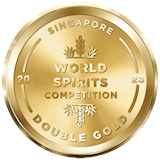
SWSC - Singapore World Spirits Competition - Double Gold
2023
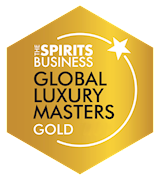
The Luxury Masters - Gold
2023
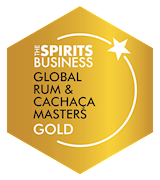
The Rum & Cachaça Masters - Gold
2023, 2022
BEST Havana Club Spirits
AWARDS

The Luxury Masters - Gold
2023
BEST Ron Santiago de Cuba Spirits
TABLE OF CONTENTS
Best Cuban Beverages
AWARDS
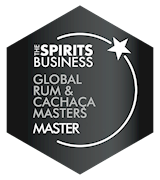
The Rum & Cachaça Masters - Master
2023
AWARDS
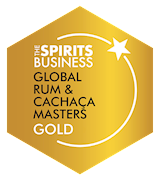
The Rum & Cachaça Masters - Gold
2023
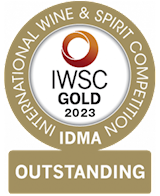
IWSC- International wine & spirit competition - Spirit Gold Outstanding
2023
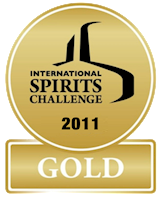
ISC-International Spirits Challenge - Gold trophy
2012, 2011
AWARDS

ISC-International Spirits Challenge - Gold
2012, 2011
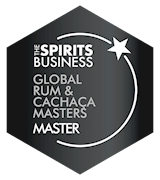
The Rum & Cachaça Masters - Master
2022
AWARDS

SWSC - Singapore World Spirits Competition - Double Gold
2023

The Rum & Cachaça Masters - Gold
2023, 2022
AWARDS

The Rum & Cachaça Masters - Gold
2022

ISC-International Spirits Challenge - Gold
2011
AWARDS

The Rum & Cachaça Masters - Gold
2022

IWSC- International wine & spirit competition - Spirit Gold
2021
AWARDS

The Luxury Masters - Gold
2023
AWARDS

The Luxury Masters - Gold
2023
AWARDS

The Rum & Cachaça Masters - Gold
2022
AWARDS

The Rum & Cachaça Masters - Gold
2023
TasteAtlas food rankings are based on the ratings of the TasteAtlas audience, with a series of mechanisms that recognize real users and that ignore bot, nationalist or local patriotic ratings, and give additional value to the ratings of users that the system recognizes as knowledgeable. TasteAtlas Rankings should not be seen as the final global conclusion about food. Their purpose is to promote excellent local foods, instill pride in traditional dishes, and arouse curiosity about dishes you haven’t tried.
















